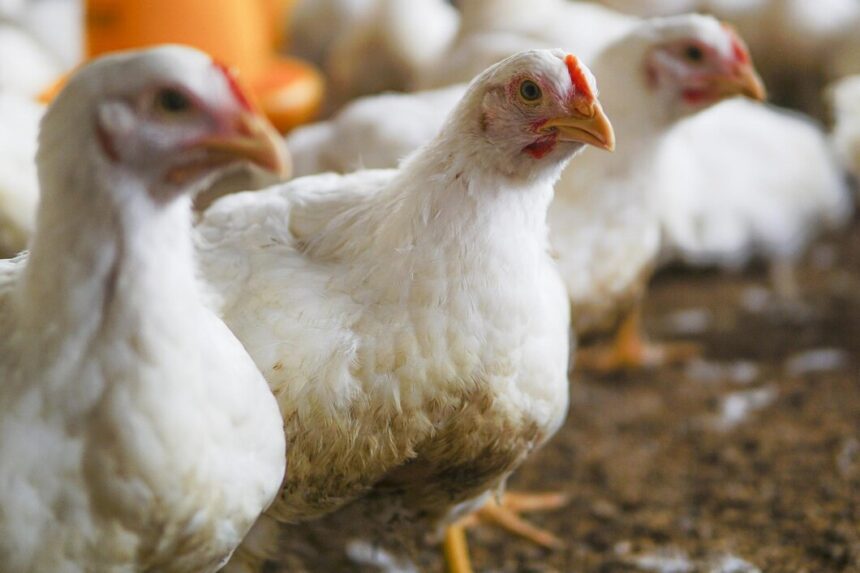Poultry farming is a significant agricultural sector in South Africa, providing food security and economic opportunities. To maximize productivity and sustainability, farmers can adopt several innovative and effective techniques. Here are ten strategies that South African farmers should consider to enhance their poultry farming operations:
1. Implement Biosecurity Measures
Biosecurity is crucial in preventing the spread of diseases within poultry farms. Farmers should enforce strict hygiene protocols, such as disinfecting equipment and vehicles, controlling access to poultry houses, and using protective clothing. Establishing quarantine areas for new birds and regularly monitoring flock health can also mitigate the risk of disease outbreaks.
2. Optimize Housing Conditions
Providing optimal housing conditions is essential for poultry health and productivity. Ensure adequate ventilation, temperature control, and lighting within poultry houses. Proper insulation and cooling systems can help maintain a stable environment, reducing stress and promoting better growth and egg production.
3. Balanced Nutrition
A well-balanced diet is vital for the growth and productivity of poultry. Farmers should use high-quality feed formulated to meet the specific nutritional needs of their birds. Including vitamins, minerals, and amino acids in the feed can enhance growth rates, improve egg quality, and boost the immune system.
4. Vaccination Programs
Vaccination is an effective method to prevent common poultry diseases such as Newcastle disease, avian influenza, and infectious bronchitis. Implementing a comprehensive vaccination schedule can protect flocks from debilitating diseases, reducing mortality rates and improving overall farm productivity.
5. Water Quality Management
Access to clean, fresh water is essential for poultry health. Regularly test and maintain water quality to prevent contamination and the spread of waterborne diseases. Using nipple drinkers or automated watering systems can reduce water wastage and ensure a consistent supply.
6. Flock Management and Record Keeping
Effective flock management involves monitoring bird health, growth rates, and production levels. Keeping detailed records of feed consumption, vaccination schedules, and mortality rates helps farmers identify trends and make informed decisions. Regular weighing and health checks can also assist in early disease detection and management.
7. Utilize Technology
Integrating technology into poultry farming can significantly enhance efficiency and productivity. Automated feeding and watering systems, climate control sensors, and data analytics tools can help farmers monitor and manage their operations more effectively. Technology can also streamline record-keeping and improve decision-making processes.
8. Adopt Sustainable Practices
Sustainable farming practices not only protect the environment but also improve farm profitability. Implementing waste management systems, such as composting poultry litter, can reduce pollution and provide valuable fertilizer for crops. Additionally, using renewable energy sources like solar panels can lower operational costs and reduce the farm’s carbon footprint.
9. Diversify Poultry Products
Diversifying poultry products can open new market opportunities and increase farm revenue. Farmers can explore producing free-range or organic eggs, specialty poultry breeds, or value-added products like smoked or processed chicken. Diversification can also help mitigate risks associated with market fluctuations.
10. Training and Education
Continuous learning and staying updated with the latest industry practices are crucial for success in poultry farming. Farmers should participate in training programs, workshops, and agricultural conferences to enhance their knowledge and skills. Networking with other farmers and industry experts can also provide valuable insights and support.
Enhancing poultry farming in South Africa requires a combination of modern techniques, sustainable practices, and continuous education. By implementing these ten strategies, farmers can improve their productivity, ensure the health and well-being of their flocks, and contribute to the growth and sustainability of the poultry industry. Embracing innovation and best practices will enable South African poultry farmers to thrive in an increasingly competitive market.
Join 'Farmers Mag' WhatsApp Channel
Get the latest Farming news and tips delivered straight to your WhatsApp
CLICK HERE TO JOIN






